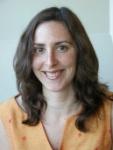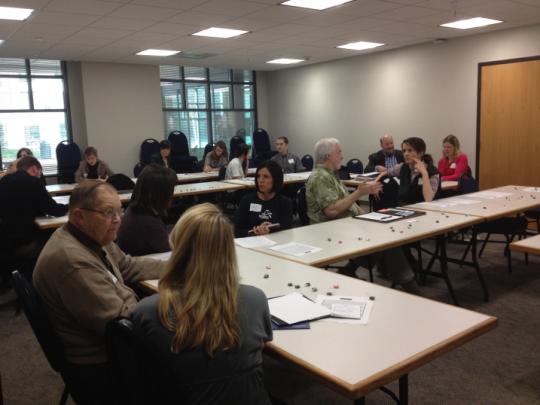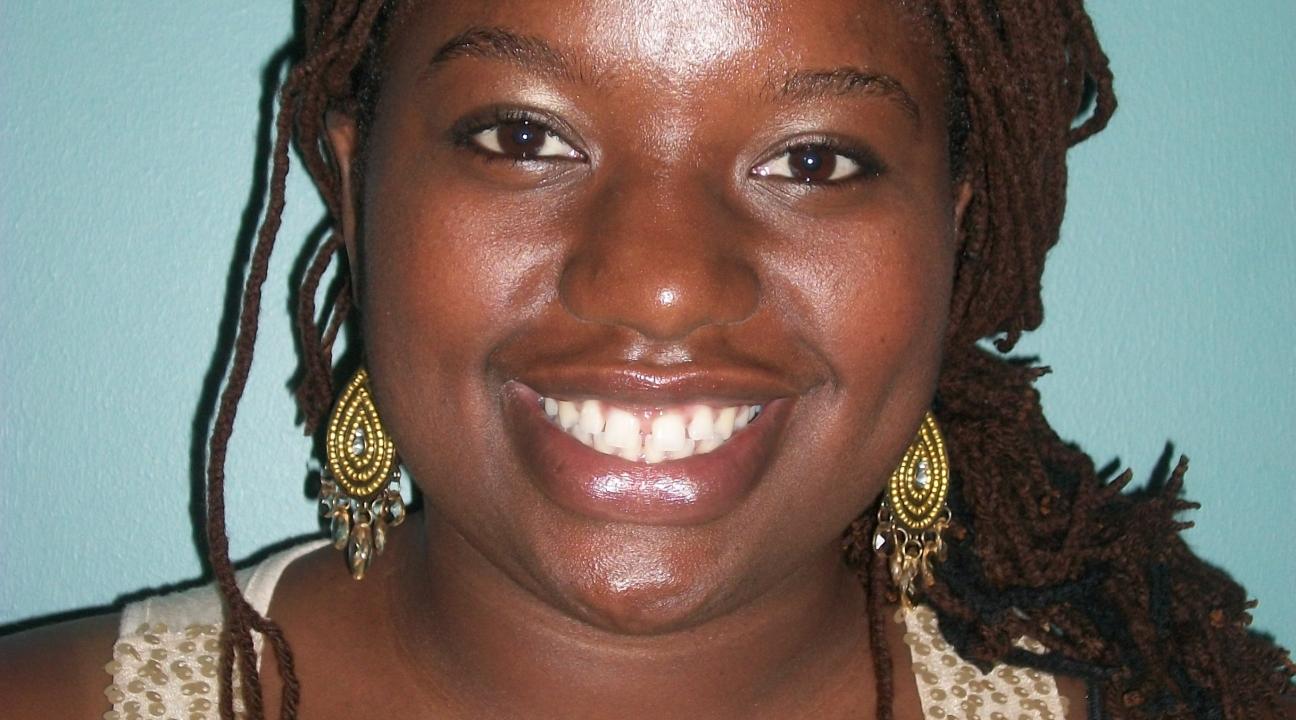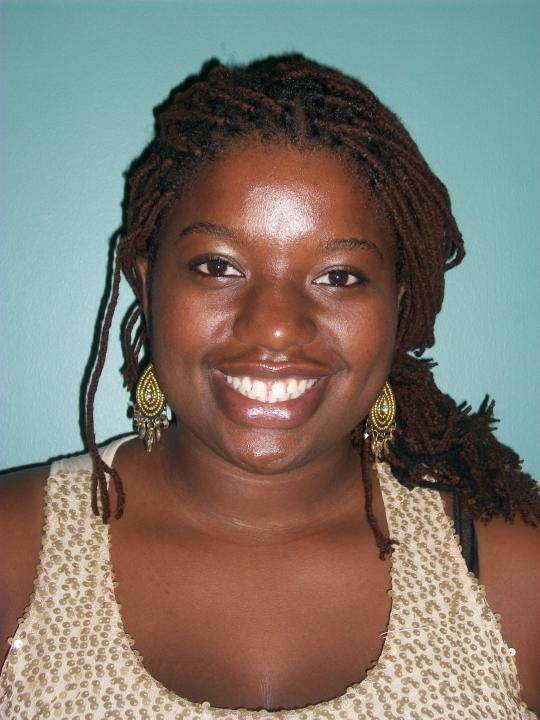Learning to Access the University's Resources
"The most effective part of the workshop was that there was no reading through the lecture notes. It was not overwhelming and it helps learning the difference between service-learning, CIP and internships," said Ventura Albor, the Accountability Circles Program Manager at Restorative Resources. He added that he would love to collaborate with Chicano Studies, AMCS, Philosophy, Math and Statistics Departments and even the Department of Environmental Studies & Planning (ENSP)," for outdoor experiences for the youth."
Giving community partners the tools and resources they need to access the University is essential to the success of the CCE. That's why the CCE hosted a workshop called Creating Non-Profit and Education Partnerships that Promote Volunteerism and Inspire Learning. The workshop provides non-profits with vocabulary and a map of how to access higher education for collaborative partnerships. The morning began with introductions. Each person was assigned to meet someone new and report back who they met, what organization they represent and what their relationship has been with SSU.
Participants learned what volunteer and service options students and faculty participate in. This progressed into an explanation to the differences between internships, CIP, volunteerism and jobs and the ways in which service-learning can be mutually effective for both non-profits students and faculty.
CM: Can you explain your role with Wildlife Rescue?
KR: My role at the Wildlife Rescue is Education Outreach, so I deal with all aspects that include public outreach including fairs, tours, education programs for schools and groups and the website.
CM: How does your organization hope to utilize the University?
KR: We don't have a current internship program in place. At the moment we are trying to develop a summer internship program. We were hoping we could utilize the University to recruit students for our program but through the workshop I learned that the expectations of the students would not be fulfilled with the internships we could offer. We are now looking for people who do not need to fulfill a requirement for school and simply want to build their resumes with job experience.
CM: And lastly, what was the most effective part of the workshop for you?
KR: The most effective part of the workshop was the whole thing. Before, I did not know the differences between the programs and it made it much easier to report back to the Director of the Rescue and let her know why we needed to rethink our expectations. I was amazed at how little we knew about internships and I didn't realize there were other programs out there.
Gretchen Warner, with the Volunteer Center of Sonoma County, who handles the Literacy Connection Program says that, "The most effective part has been giving us the jargon so we can communicate with professors." She also works with the SSU Upward Bound Program, which prepares low-income, college bound youth, at the start of 8th grade, for success in higher education.
The workshop was a success and many future community partners walked away with the tools they need to participate in civic engagement at SSU.
If you are a non-profit or governmental organization looking for ways to collaborate with the University, keep a lookout for the next Service and Internship Fair.

Author: Merith Weisman





